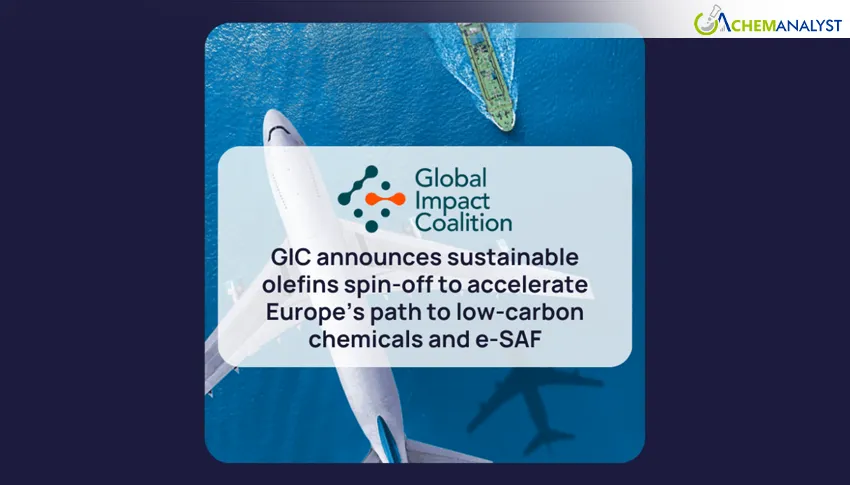Welcome To ChemAnalyst

A new spin-off from the Global Impact Coalition is launching a feasibility study to explore a sustainable, methanol-based route for producing low-carbon chemicals and sustainable aviation fuel (e-SAF).
In a significant move toward decarbonizing the chemical and aviation industries, the Global Impact Coalition (GIC), a CEO-led platform dedicated to fostering a circular and net-zero chemical value chain, has announced the creation of a new spin-off structure. This new entity will spearhead the GIC's Sustainable Olefins project, starting with a comprehensive feasibility study to explore a groundbreaking, low-emission production pathway for essential chemical building blocks and sustainable aviation fuels.
The initiative focuses on using methanol-to-olefins (MTO) technology as a sustainable alternative to conventional, fossil-based production methods. By converting sustainable methanol—itself a rising star in the clean energy landscape—into olefins, the project aims to create a scalable and electrifiable route for producing these crucial industrial components. Olefins are the fundamental building blocks for countless products, including polymers and materials used in packaging, consumer goods, and electric vehicles. The feasibility study, a collaborative effort among GIC member companies, will assess the technical and economic viability of this first-of-its-kind production facility in Europe.
According to Charlie Tan, CEO of the Global Impact Coalition, this project represents a critical step forward in addressing some of the most challenging aspects of industrial decarbonization. "Transforming how we produce essential building blocks like olefins is key to reducing emissions in the chemical sector and related value chains, such as aviation," Tan stated. "The announcement today signals the growing momentum toward transforming the global chemical sector at a time when new technologies are urgently needed to meet climate and business goals."
The new spin-off structure is designed to facilitate deeper collaboration among participating companies, explore investment opportunities, and lay the groundwork for a potential large-scale project. This collaborative approach is a hallmark of the GIC, which was incubated at the World Economic Forum to tackle complex sustainability challenges that no single company can solve alone. The coalition, guided by leaders from major corporations like BASF, SABIC, and LyondellBasell, provides a crucial platform for co-developing and scaling new technologies and business models.
The project's scope extends beyond just low-carbon chemicals. A particularly impactful application of the MTO process is the production of electro-Sustainable Aviation Fuel (e-SAF). By leveraging e-methanol—which is produced using renewable electricity, captured carbon dioxide, and green hydrogen—the MTO pathway offers a flexible and scalable route to decarbonize the aviation sector, a notoriously hard-to-abate industry. The rising demand for e-SAF, coupled with increasingly stringent regulatory mandates across Europe, positions this project to capitalize on a rapidly expanding market.
The timing of this initiative is particularly strategic. With the global green methanol market projected to triple by 2030, the spin-off is well-positioned to benefit from a growing supply of sustainable feedstock.
We use cookies to deliver the best possible experience on our website. To learn more, visit our Privacy Policy. By continuing to use this site or by closing this box, you consent to our use of cookies. More info.
